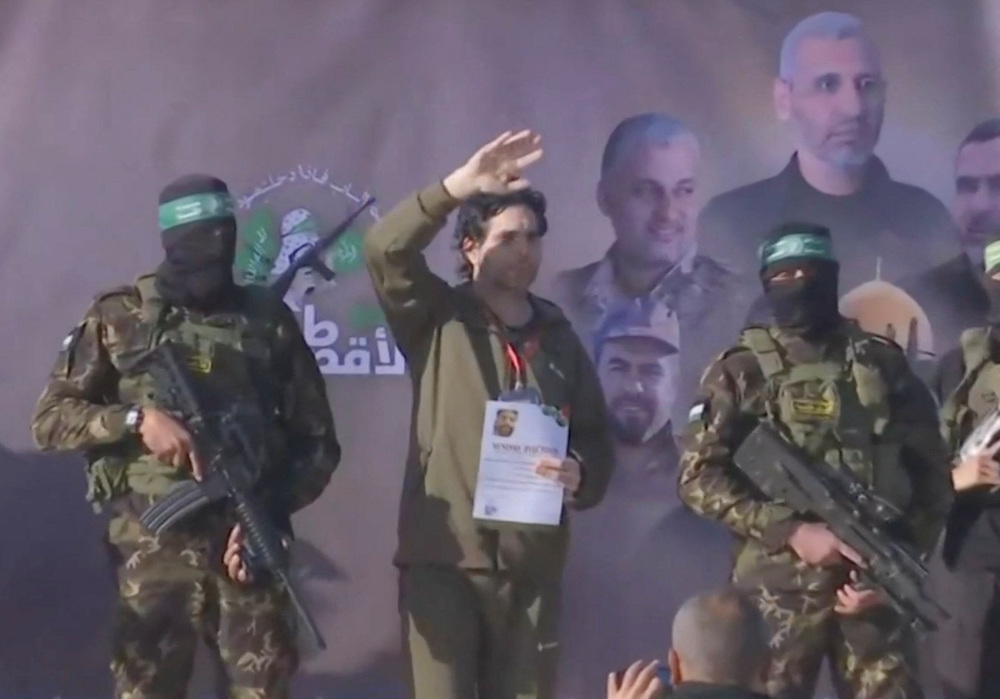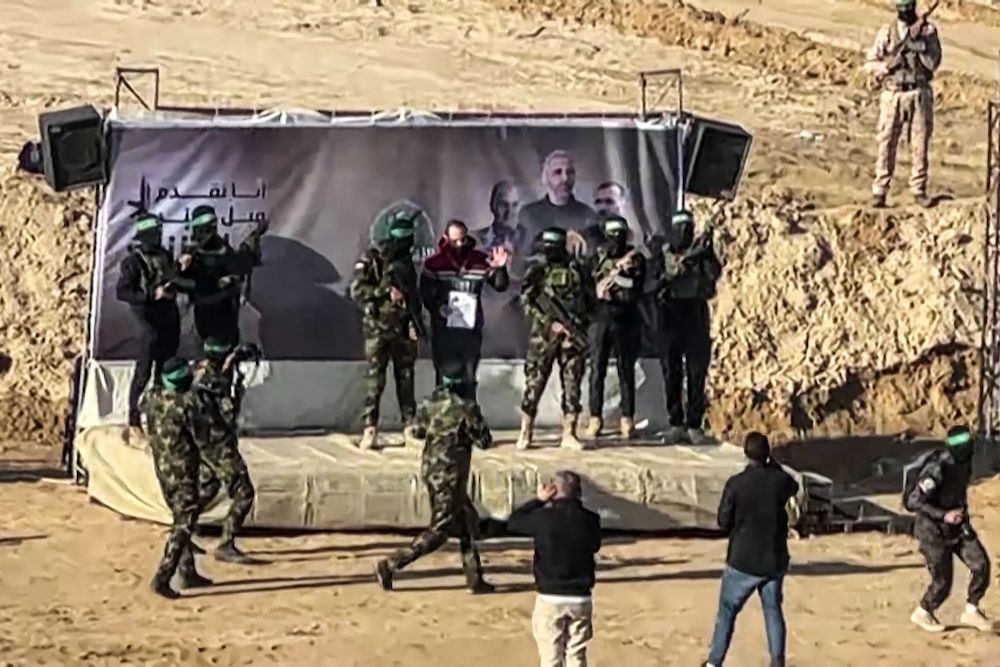NEW YORK CITY: A US-led resolution endorsing a ceasefire plan aimed at ending the eight-month war in Gaza was adopted by the UN Security Council on Monday, with 14 of the 15 members voting in favor and Russia abstaining.
It was the 11th time the council had voted on a draft resolution relating to the war in Gaza. Only three have been adopted.
Resolution 2735, a copy of which was obtained by Arab News, welcomes a three-phase ceasefire proposal announced by US President Joe Biden on May 31, which Washington said Israeli authorities have accepted, and calls on Hamas to accept it as well. It urges both sides “to fully implement its terms without delay and without condition.”
After it was adopted, the US ambassador to the UN, Linda Thomas-Greenfield, said the council has sent “a clear message to Hamas: accept the ceasefire deal on the table.” If it does so, “the fighting would stop today,” she added.
Hamas can now see the international community is united behind a deal that will save lives, help Gazans “to rebuild and heal” and reunite Israeli hostages with their families, she said.
The deal will also lead to “a more secure Israel and unlock the possibility of more progress, including calm along Israel’s northern border with Lebanon,” Thomas-Greenfield continued.
“We cannot forget the Israelis displaced from their homes in northern Israel, under threat from Hezbollah. These attacks from terrorist groups backed by Iran must stop. They have to stop.”
She said Palestinians have endured “sheer hell in this war started by Hamas. There’s an opportunity to chart a different course; Hamas must take it.”
Phase one of the plan, as outlined by the resolution, requires “an immediate, full and complete ceasefire, with the release of hostages, including women, the elderly and the wounded, the return of the remains of some hostages who have been killed, (and) the exchange of Palestinian prisoners.”
It also calls for the “withdrawal of Israeli forces from the populated areas in Gaza, the return of Palestinian civilians to their homes and neighborhoods in all areas of Gaza, including in the north, as well as the safe and effective distribution of humanitarian assistance at scale throughout the Gaza Strip to all Palestinian civilians who need it, including housing units delivered by the international community.”
Phase two would include “a permanent end to hostilities, in exchange for the release of all other hostages still in Gaza, and a full withdrawal of Israeli forces from Gaza.” Phase 3 would begin “a major, multi-year reconstruction plan for Gaza and the return of the remains of any deceased hostages still in Gaza to their families.”
The proposal states that should negotiations between the two sides during phase one take longer than six weeks, the ceasefire will be maintained as long as the talks continue, and it “welcomes the readiness of the United States, Egypt and Qatar to work to ensure negotiations keep going until all the agreements are reached and phase two is able to begin.”
It rejects any potential attempts to impose “demographic or territorial change in the Gaza Strip, including any actions that reduce the territory of Gaza,” reiterates the commitment to a two state solution, and stresses the importance of “unifying the Gaza Strip with the West Bank under the Palestinian Authority.”
Slovenia’s deputy permanent representative to the UN, Ondina Blokar Drobic, told council members after the vote: “We have been saying this for months now: The suffering in Gaza must end.
“We have been constantly calling for the immediate release of hostages. However, military operations for the release of hostages, leaving hundreds of civilians killed and injured, like the one in the Nuseirat refugee camp on Saturday, cannot be the new normal. The principles of international humanitarian law and human rights law apply to hostage-rescue operations as well.”
Listing the many atrocities and horrors witnessed during the war, Drobic added: “The denial of aid to civilians, including women, children, persons with disabilities and older persons; humanitarian and UN personnel killed; UN premises targeted; hospitals besieged; children’s limbs amputated without anesthesia; women giving birth without appropriate assistance; mass graves; civilian areas in Gaza and in Israel targeted, attacked and destroyed — none of this should be taking place.
“Photos of children, some of them born during this war, dying because of malnutrition” will go down in history among the defining images of a conflict “this council should have prevented.”
She added: “It is for this reason we once again call for an immediate ceasefire. This is the first step toward achieving a comprehensive solution.”


























